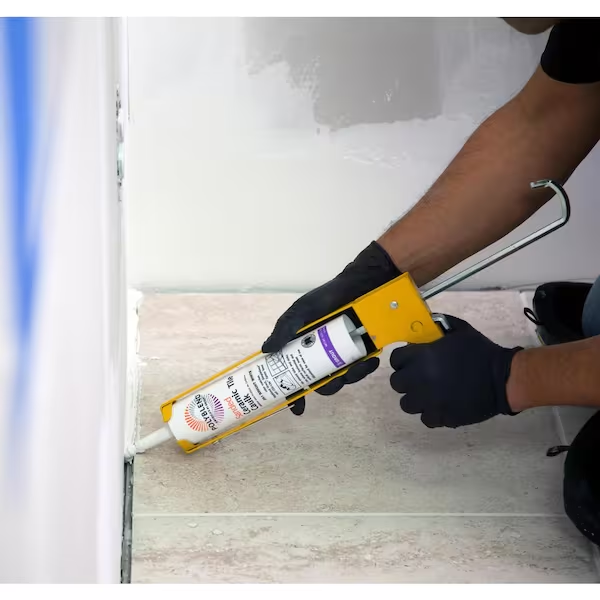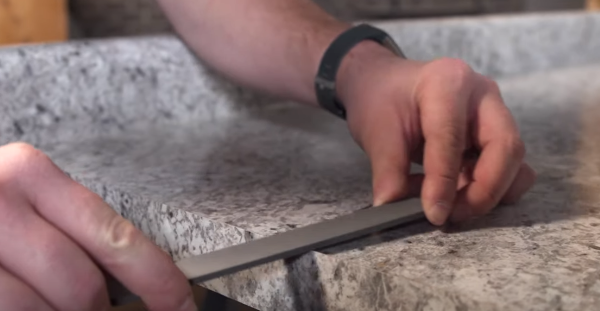Getting permits is crucial to any construction or renovation job in Philadelphia. The rules for approval vary, and they change over time. Even after working in the industry for more than 25 years as a renovation contractor, we still encounter new challenges for each project because no two permit processes are identical.
Sometimes, the only way to tackle these challenges is through experience, which saves time and money. The good news is that we are here to share our experiences with you. In this article, we will share our experience with a project’s permit process, specifically getting a Philadelphia EZ Permit for a Two Family Dwelling. Keep reading to find out more about the Philadelphia EZ Permit Program. Let’s get started!
Understanding Philadelphia’s EZ Permit Program
A permit is like official permission from the government that allows you to do a specific job. You usually need a permit for renovation work, and your project’s scope of work determines the kind of permit you need. To find out what permits you need for your renovation, check the City of Philadelphia’s website under the “apply for a permit” section or ask a contractor.
Building and Repair Permits can be divided into Standard and EZ Permits. The main difference between Philadelphia EZ Permits and Standard Permits is that EZ Permits do not require you to submit plans, but Standard Permits do. The “EZ” in EZ Permit means “easy,” the program simplifies the permit application for minor construction and renovation jobs. However, the eligibility of your project for an EZ Permit depends on the scope and nature of the work you plan to undertake.
Our Project
We worked on a two-family dwelling on Harrison Street in Philadelphia. Our job involved:
- Changing windows and doors.
- Renovating the siding.
- Tearing down some non-load-bearing walls.
- Framing partition walls.
The first step when applying for the permits was to see if our project qualified for an EZ Permit. If it did, we would get the permit quicker and begin the renovation process sooner.
We applied for Philadelphia EZ Permit for a Two Family Dwelling, but unfortunately, our application was denied. We wondered if it was because our project was a two-family dwelling. It was a three-story building where the first floor was considered the first unit, and the second and third floors were considered the second unit. Typically, we would qualify for an EZ Permit for a project like this without structural changes. When we researched, finding a clear answer was tough. We decided to share our experience with others who may have the same questions.
EZ Permit Qualified Projects
First, let’s address a fundamental question: Which projects are eligible for an EZ Permit? Below is a list of qualifying projects:
- Interior alterations to an existing single-family dwelling
- Sign installation
- Commercial sprinkler relocation
- Deck addition to an existing single-family dwelling
- Installation of ductwork and warm air appliances
- Electrical vehicle charger station accessory to single- or two-family dwellings
- Application of exterior wall covering
- Interior demolition of non-bearing partition walls and ceilings
- Installation of new wet chemical kitchen fire suppression system
- Limited demolition and commercial alterations
- Replacing or altering a non-load bearing masonry wall on single-family dwellings
- Exterior wall sidings for the purpose of finishing walls exposed during demolition
- Adding above-ground or in-ground swimming pools and spas to single-family dwelling
- Adding a porch enclosure to detached single- and two-family dwellings
- Installation of new roof coverings on existing roofs
- Relocation of residential sprinkler heads
- Building a retaining wall
- Installation of Security Gates & Grills
- Installation of Solar Photovoltaic (SP) System on the roof of single- or two-family dwellings
- Replacement of non-fire resistance rated windows/doors without structural change on single-and two-family dwellings
- Zoning permits for sign installation in an existing building
EZ Permit for a Two-Family Dwelling
Let’s tackle the central question of this article together. Generally, you will NOT qualify for an EZ Permit when renovating a two-family dwelling. The City of Philadelphia’s website states that EZ Permits are typically for changes to single-family dwellings, following specific conditions and limitations. So, if you are getting ready for a renovation project on a two-family dwelling, you must apply for a standard permit instead. However, the project will qualify for a Philadelphia EZ Permit for specific tasks like replacing windows or doors, adding a porch enclosure, or moving sprinkler heads in a two-family dwelling.
Therefore, if you are planning an extensive renovation for a two-family dwelling, don’t apply for an EZ Permit; go for the standard one. But if it is a minor job like changing windows, you might be eligible for an EZ Permit. Check here first, and if you still have questions, consult with the Department of Licenses and Inspections (L&I) or a professional contractor.
Determining if Your Project Qualifies for a Philadelphia EZ Permit?
It can sometimes take work to determine if your renovation project qualifies for an EZ Permit. To see if it does, consider the following factors:
1.Scope of Work
The first step in determining if you can obtain an EZ Permit is to assess the nature of your project. The EZ Permit program typically covers minor construction activities, such as interior alterations, plumbing upgrades, and minor electrical work.
2. Project Size
The program is best suited for small to medium-sized projects. Significant structural changes or additions require a standard building permit rather than an EZ Permit.
3. Residential Dwellings
EZ Permits are usually applicable for single-family dwellings, provided the proposed renovations fall within the program’s guidelines. For other projects, it might not be able to be used.
After assessing your project, look for your project on the list. You will need to obtain a standard permit if it is not included. If it is, read the description carefully to ensure your project meets all the requirements for getting an EZ Permit.
Conclusion
An EZ Permit is excellent for speeding up small renovation projects. Before you apply for a standard permit, check if your project will qualify for an EZ Permit. Our experience with two-family dwellings showed that EZ Permits most likely will not be eligible, so we had to get standard permits. This article is based on the latest updates, but keep in mind that there may be changes in the future that could affect the process of obtaining an EZ or a standard permit.
But remember, even if your project qualifies for an EZ Permit, you might still need other permits, like zoning or plumbing permits. Getting permits can be easy, but having some experience helps. Thus, always consult a professional contractor for any renovation project to determine your necessary permits.
If you are looking for renovation services in the Philadelphia or New Jersey areas, contact Matrix Company Solutions Corp. We offer FREE Consultations and Estimates and are ready to help you.
Also we hope this article was helpful and informative. If you have any questions or comments, please feel free to leave them below. We would love to hear from you and learn from your experience with getting a Philadelphia EZ Permit for a Two Family Dwelling. Thank you for reading!








![How to Get a Philadelphia EZ Deck Permit [2024]](https://matrixgc.com/wp-content/uploads/2022/07/Elevated-Deck-in-Philadelphia-Matrix-Construction-400x250.jpg)


0 Comments